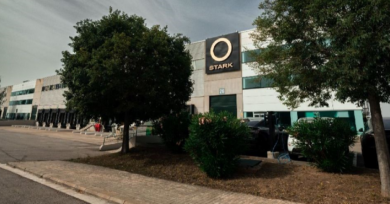Mar. 10, 2008 – Invasive mussels force California closures
By Jeff Hemmel
PWC Editor
It used to be dealers needed only to educate buyers about the safe operation of their PWC. Now, the rapid spread of invasive aquatic species has brought up the need for educating buyers on how to care for those PWC before and after leaving the water in order to protect the future of the nation’s waterways.
The recent discovery of both quaga and zebra mussels has forced California officials to severely limit access to two Stockton-area reservoirs, the Camanche and Pardee, as of Feb. 1.
Under the restrictions, only local boaters will be allowed access to the lakes, and only after close inspection by state officials. Southern California boaters, as well as all non-California boaters, will not be allowed to use either reservoir. It’s not a rash reaction.
Zebra mussels were found in San Benito County’s San Justo Reservoir, near San Jose, only 15 days into the new year. This marks the first population of the destructive species to be found to date anywhere in California waters. Last year, quagga mussels were found in the Colorado River system in January. Later, they were found to have spread to both San Diego and Riverside counties.
“The discovery of zebra mussels in a central California waterway has us very concerned,” said Secretary for Resources Mike Chrisman. “Like its relative, the quagga mussel, this species can cause significant environmental, recreational and economic impacts once established in a body of water. It is important that boaters do everything they can to help stop their spread.”
Zebra What?
Zebra mussels, and their relative the Quagga, are both examples of species that are not native to North America. The zebra, in fact, is native to Russia’s Caspian Sea. International shipping has helped foster the mussel’s prolific spread. The mussels first surfaced in North America in the late 1980s, when they were detected in the Great Lakes region.
Ocean-going ships navigating the St. Lawrence Seaway were the likely cause, transporting the mussels across the ocean in their ballast water, before dumping the water into the waterway as they took on cargo. From there, the mussels have began to spread at a breakneck pace.
Currently, they affect a frightening number of the major U.S. rivers, including the Mississippi, Hudson, St. Lawrence, Ohio, Cumberland, Missouri, Tennessee, Colorado and Arkansas.
At first glance, the mussels’ appearance might in fact seem beneficial, as they filter the water. Recreational enthusiasts often report their lakes taken on a much cleaner, clearer appearance thanks to the mussel’s presence.
The reality, however, is the mussels are actually filtering out the algae that would be the normal food source for native microscopic organisms. They’re also rapidly overwhelming the local mussels, killing off numerous species and disrupting the native ecosystems.
The mussels have taken their toll on the industry and the economy as well. Reproducing exponentially faster than native species, the mussels clog pipelines at water treatment and power plants, which suck in water for cooling purposes, and clog marinas, boatyards and docks.
The shells of dead mussels are also altering beachfronts. Industries have been forced to spend enormous amounts of money to rid themselves of the mussels, which is an ongoing process. Those very same mussels can also affect PWC, clogging cooling passages and attaching themselves to hull surfaces and steering and pump assemblies.
Ranging in size from microscopic to about an inch in length, the mussels can attach themselves to both hard and soft surfaces. As you might expect, boats continue to be their primary means of transportation. Both zebra and quagga mussels also can attach themselves to boat trailers, cooling passages, hulls and various types of steering equipment as well.
According to the U.S. Geological Survey, the costs associated with controlling zebra mussel expansion in the Great Lakes region alone might soon reach an estimated $5 billion annually.
West In The Crosshairs
While the interconnected waterways of the Eastern seaboard made for a relatively easy migration, trailered PWC and boats are now considered the primary ally for helping these species establish themselves throughout areas in the West.
Currently, no North American predator has been found to effectively counteract the spread of this persistent species. If the mussels were allowed to firmly establish themselves in the West, officials say it is likely that they would remain a permanent fixture in all North American waterways.
Dealers, however, can help play a vital role in educating their customers on how to prevent the spread of the mussels from one waterway to another.
One simple method for consumers is to thoroughly clean and dry their watercraft, and all its associated paraphernalia, after exiting any waterway they’ve been in.
Careful inspection also is required before entering a new body of water. Customers also should be encouraged to cooperate with inspection stations being established in order to look for the mussels.
Too much trouble? Consider the alternative — that mussel infestations will close your local waterway. San Benito Public Works recently closed the San Justo Reservoir to all boating activity following January’s discovery of zebra mussels.




